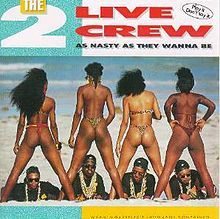“Punting the Pundits” is an Open Thread. It is a selection of editorials and opinions from around the news medium and the internet blogs. The intent is to provide a forum for your reactions and opinions, not just to the opinions presented, but to what ever you find important.
Thanks to ek hornbeck, click on the link and you can access all the past “Punting the Pundits”.
Follow us on Twitter @StarsHollowGzt
Joseph Stiglitz: The Price of Inequality and the Myth of Opportunity
America likes to think of itself as a land of opportunity, and others view it in much the same light. But, while we can all think of examples of Americans who rose to the top on their own, what really matters are the statistics: to what extent do an individual’s life chances depend on the income and education of his or her parents?
Nowadays, these numbers show that the American dream is a myth. There is less equality of opportunity in the United States today than there is in Europe – or, indeed, in any advanced industrial country for which there are data.
This is one of the reasons that America has the highest level of inequality of any of the advanced countries – and its gap with the rest has been widening. In the “recovery” of 2009-2010, the top 1% of US income earners captured 93% of the income growth. Other inequality indicators – like wealth, health, and life expectancy – are as bad or even worse. The clear trend is one of concentration of income and wealth at the top, the hollowing out of the middle, and increasing poverty at the bottom.
Paul Krugman: Reagan Was a Keynesian
There’s no question that America’s recovery from the financial crisis has been disappointing. In fact, I’ve been arguing that the era since 2007 is best viewed as a “depression,” an extended period of economic weakness and high unemployment that, like the Great Depression of the 1930s, persists despite episodes during which the economy grows. And Republicans are, of course, trying – with considerable success – to turn this dismal state of affairs to their political advantage.
They love, in particular, to contrast President Obama’s record with that of Ronald Reagan, who, by this point in his presidency, was indeed presiding over a strong economic recovery. You might think that the more relevant comparison is with George W. Bush, who, at this stage of his administration, was – unlike Mr. Obama – still presiding over a large loss in private-sector jobs. And, as I’ll explain shortly, the economic slump Reagan faced was very different from our current depression, and much easier to deal with. Still, the Reagan-Obama comparison is revealing in some ways. So let’s look at that comparison, shall we?
Alan Grsyson:
How You Can Tell When the Deficit Is a Problem
A few days ago, I was stuck in the car for a long drive. Because of the complete absence of progressive talk from Orlando’s airwaves, I had no real choice but to listen to the nasal maundering of Mark Levin on the radio. Levin was very upset about the federal deficit.
Interestingly, Levin was a high-level appointee in the Reagan Administration. Dick Cheney, who was Reagan’s Defense Secretary and later the Vice President, said 10 years ago that “Reagan proved deficits don’t matter.”
I must concede that it is rather difficult to reconcile the conflicting statements of these two gentlemen, Messrs. Evidently, they believe deficits are a terrible tragedy when a Democrat is President, and a wonderful gift when a Republican is President.
There has got to be a more objective standard than that.
Ted Rall: Recovery? What Recovery?
Behind the New Jobs Numbers, Dull Statistics Tell a Terrifying Story
“Worst U.S. Jobs Data in a Year Signals Stalling Recovery,” The New York Times ran as its lead headline on June 2. The Labor Department reported that the U.S. economy created 69,000 jobs during May. The three-month job-creation average was 96,000. Unemployment ticked up a tenth of a point, from 8.1 to 8.2 percent.
Once again, the media is downplaying a blockbuster story-recovery? what recovery?-by dulling it down with a pile of dry, impenetrable statistics.
Wonder why you can’t find a job or get a raise, and your house has been sitting on the market for years? The new jobs numbers are the key to understanding how bad the economy is-and why it’s not likely to get better any time soon.
Joan Donovan: Translating the Quebec Student Protests
Compared to its current clamor, the Quebec student protests began last year with a whimper. In March of 2011, Finance Minister Raymond Bachand announced that Quebec student tuition would increase by $325 every year for five years. By August, student organizations were debating the possibility of an unlimited student strike. In February 2012, student organizations from several colleges and universities endorsed the action and blockaded Montreal’s Jacques Cartier Bridge, a major artery in the city. Over the next few months, numerous violent clashes with Montreal police led to mass arrests. But on May 18, 2012, Quebec’s Premier Charest raised the stakes by instituting “special” Bill 78. This law prohibited protests within 50 meters of any university, effectively making all of downtown Montreal a protest-free zone. May 22 marked the 100th day of the strike, and nearly 400,000 people marched through downtown joyously defying the law.
John Nichols: Bernie Sanders Sees Threatening ‘Aggressiveness Among the Ruling Class’
Governor Scott Walker says that, with his victory in Tuesday’s recall election, he will “tell Wisconsin, tell our country, and we tell people all across the globe that voters really do want leaders who stand up and make the tough decisions…”
Actually, cutting taxes for CEOs and corporations and then balancing budgets on the backs of teachers, nurses and snowplow drivers isn’t exactly tough work. Redistribution of the wealth upward is common practice these days.
That said: Walker’s right about the fact that his victory speaks to the state, the nation and the world.
But what does it say?
David Sirota: The War on Whistle-Blowers
When a democracy functions properly, media revelations of executive branch misconduct typically result in an investigation by the legislative branch. Watergate epitomized this healthy dynamic-illegal acts exposed by the Washington Post prompted congressional hearings and ultimately prosecutions. In other words, checks and balances functioned properly, and the system both cleansed itself of wrongdoers and rejected the Nixonian notion that no matter what a president does, it is inherently legal.
So when The New York Times this week ran the headline “Senate Will Investigate National Security Leaks About Terrorism ‘Kill List,'” it was a frightening sign that something has gone horribly wrong since the Woodward-and-Bernstein days.
Bill Boyarsky: The Invisible Man
With the Republican presidential nomination sewed up, Mitt Romney is now pretending to be acceptable to the moderate voters he will need to win in November.
Gone are the conservative promises of the primary: “I know conservatism because I have lived conservatism. … I was a severely Republican governor.” Note that his so-called severity didn’t prevent him from creating Romneycare, the model for the Affordable Health Care Act.
He fakes to the center, although his ultimate policy goal is on the right, dismantling the safety net, wiping out the health care law and assuring the wealthy of continued low taxes. Or is it? What does he really believe?
In Romney’s present incarnation, he is fixated on joblessness-blaming President Barack Obama without offering any solutions of his own. This is a path designed to appeal to moderates as well as conservatives.




 Welcome to the Stars Hollow Health and Fitness News weekly diary. It will publish on Saturday afternoon and be open for discussion about health related issues including diet, exercise, health and health care issues, as well as, tips on what you can do when there is a medical emergency. Also an opportunity to share and exchange your favorite healthy recipes.
Welcome to the Stars Hollow Health and Fitness News weekly diary. It will publish on Saturday afternoon and be open for discussion about health related issues including diet, exercise, health and health care issues, as well as, tips on what you can do when there is a medical emergency. Also an opportunity to share and exchange your favorite healthy recipes. 

Recent Comments